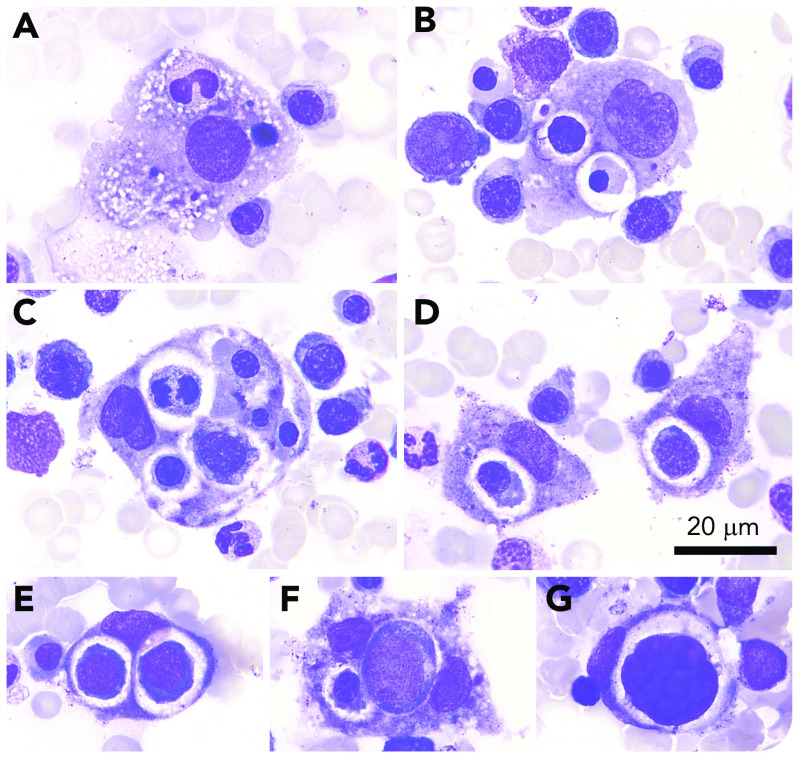A previously healthy 55-year-old woman presented with fever, malaise, and a mild cough. Chest radiograph revealed bilateral patchy infiltrates. A nasopharyngeal swab tested positive for severe acute respiratory syndrome coronavirus 2 (SARS-CoV-2) RNA. Progressive respiratory insufficiency necessitated intubation on admission day 3. She developed profound normocytic anemia (hemoglobin, 6.8 g/dL) and thrombocytopenia (23 × 103/µL) that were refractory to platelet and erythrocyte transfusions. Ferritin levels increased sharply, peaking at admission day 8 (19 558 ng/mL). Bone marrow examination revealed striking hemophagocytosis and erythroid hyperplasia. Hemophagocytosis refers to the pathologic finding of macrophage engulfment of host blood cells (panel A, engulfment of a granulocyte; panels B-F, engulfment of various erythroid precursors; panel G, engulfment of a megakaryocyte nucleus; all panels, original magnification ×100, May-Grünwald-Giemsa stain). There was no evidence of bacterial infection or hematological malignancy. The ensemble of bicytopenia, extreme hyperferritinemia, and hemophagocytosis, unexplained by other causes, yields a likely diagnosis of reactive hemophagocytic lymphohistiocytosis. Hydroxychloroquine was discontinued after cardiac arrhythmia provoked by severe pulmonary embolism. The clinical course was protracted; transfusion dependency abated, and the patient recovered after 45 days of ventilator dependency and supportive care.
The occurrence of acute respiratory distress syndrome in SARS-CoV-2 patients is well-recognized and a leading cause of mortality. Hemophagocytic lymphohistiocytosis is a less common manifestation of the hyperinflammatory state in many critically ill COVID-19 patients. It is an ill-defined clinical entity characterized by immune-mediated tissue destruction, sporadically occurring secondary to bacterial or viral infections or to hematological malignancy. It may be underrecognized in COVID-19 patients, whereas immune dysregulation as a cause of critical illness is gaining interest as a novel therapeutic target in these patients.

